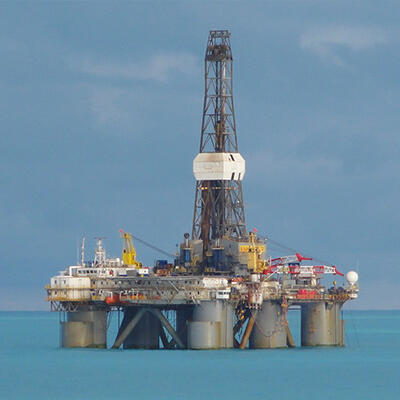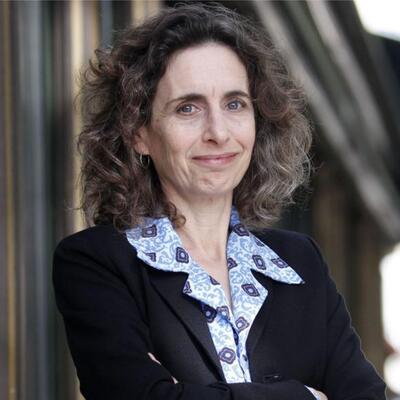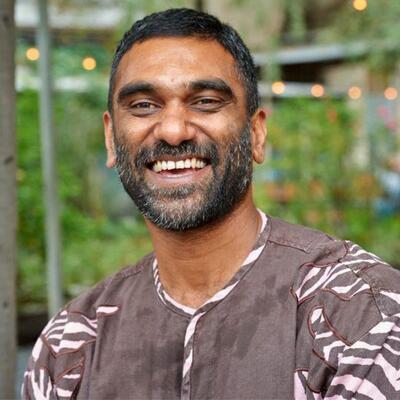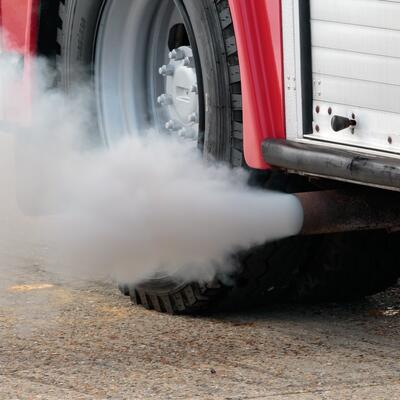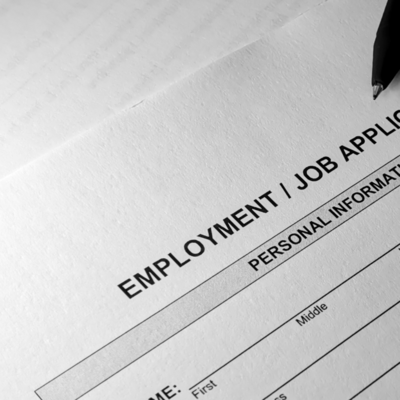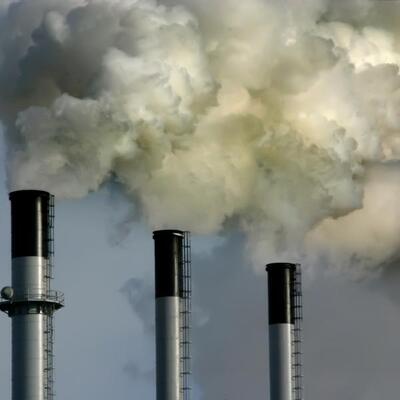
Making the Grade: Corporations and the Paris Climate Accord
Guests

Betty Cremmins
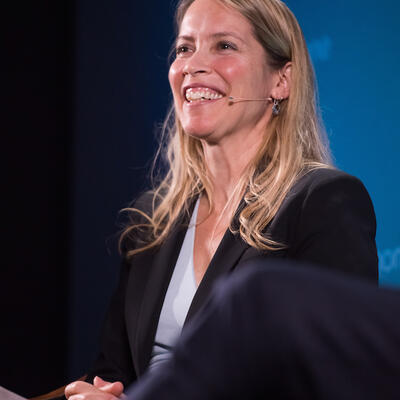
Danielle Fugere

John Streur
Summary
When you think of climate activism, Wall Street doesn’t immediately come to mind. But as investors are coming to realize, they do have a voice – and a vote – when it comes to corporate environmental action. Responsible investing is a concept that’s been around for many years, but it’s only recently that companies have begun to take notice. And who’s driving that change? Shareholders. Greg Dalton talks with three experts about the ways that market forces can turn the ship, inspiring awareness, transparency and in some cases, even change, in seemingly immovable corporations.
Related Links:
Carbon Disclosure Project – The A List
Full Transcript
Announcer: Environmental sustainability and financial stability – can a corporation really do both?
Welcome to Climate One – changing the conversation about America’s energy, economy and environment.
John Streuer: The markets were designed on the concept that all investors would have equal access to information and would make rational decisions. The challenge is we don't have access to the same information and we don't have enough information about what companies are really doing.
John Streuer is one of the people who’s working to make sure investors have access to that information. He’s the CEO of Calvert Research and Management, pioneers in responsible investing.
Responsible investing is a concept that’s been around for many years. But it isn’t until recently that companies have begun to take notice. On todays’ program, Greg Dalton talks with three experts about the ways that market forces can turn the ship, inspiring awareness, transparency and in some cases, even change, in seemingly immovable corporations.
Betty Cremmins: I think the expectation now is that disclosure is the new normal. If you have nothing to hide you shouldn't be hiding. Hopefully you're doing all the right work internally, but I think the public is increasingly demanding knowledge of this information.
Betty Cremmins is director of the Carbon Disclosure Project and Greg’s first guest today. They publish the annual A List, which scores the world’s businesses on environmental performance.
Here’s their conversation.
Greg Dalton: I was looking at the A-list of companies and saw some surprising A-companies. Las Vegas Sands owned by Republican donor Sheldon Adelson, Philip Morris International and Sky owned recently by 20th Century Fox. How did those companies get on the A-list?
Betty Cremmins: Yeah, well so at CDP we’ve established the world's largest disclosure platform. And we've set the criteria by which companies, city, states and regions around the world are disclosing their environmental impacts and the work they're doing to combat those impacts and move us toward a low carbon cleaner economy. And so on our A-list you don't actually have to be low carbon to get an A, you need to be fully aware and transparent about your emissions and your climate impacts. And you need to show progress that you're on the way towards being part of the solution. So all those companies you’ve mentioned are not only attempting for their greenhouse gas emissions, they’re setting very ambitious targets and putting themselves on a road back that will take us towards that low carbon economy that we all hope to get to.
Greg Dalton: What are some other companies that get surprising A's and perhaps even a surprising F?
Betty Cremmins: Yeah, so I mean think of A-list companies, you know, low carbon renewable energy you think of Google, Apple, Microsoft they’re all making the A-list they’re all fully transparent. On the F-list side, those companies that failed to disclose to CDP are some unexpected names like Facebook and Amazon who haven't yet disclosed. And so we’re all wondering what are they really doing. Can they measure and manage their emissions? We don’t know we don’t have the data to understand.
Greg Dalton: The irony, oh, the irony of Facebook not sharing data about itself but sharing data about everything else and everyone else, interesting. And they say they're moving to 100% renewable energy for their data platform for their data centers.
Betty Cremmins: Absolutely. We’d love to see the numbers. I think equally surprising, you know, companies that are actually part of the low carbon solution like General Electric, the largest maker of wind turbines, First Solar, a major solar farm developer are disclosing to us, but not yet fully on the A-list bandwagon. So, you know, General Electric gets a C on our questionnaire. First Solar gets a B which are very respectable and we’re excited to see them disclosing. But we really need to see them step up and set ambitious greenhouse gas targets within their own operations, not just in the products they're selling to us.
Greg Dalton: It’s quite interesting regarding General Electric. In 2016 after President Trump announced he would pull the U.S. out of the Paris climate accord, then General Electric CEO Jeff Immelt said corporations will now have to lead. He supported Paris but you're saying GE is not leading when it comes to disclosure.
Betty Cremmins: Well, we think it’s a multifaceted approach. So you need to be managing your own footprint effectively and setting ambitious science-based targets, renewable energy targets all the things to put your own company on the right pathway. You then need to be engaging upstream and downstream. You need to be engaging your supply chain. All the companies you’re purchasing from all around the world, make sure they're as low carbon and climate resilient as you are. You need to be engaging downstream to the customers buying your products, and in this case, these companies, you know, see themselves as the low carbon solution so they’re engaging with customers. And then you need to be speaking publicly, you need to be ensuring that the right policies and frameworks in the world, in the nation, in the cities and states in which you’re operating are supporting your transition as well. And so these companies might be doing great work on policy and maybe downstream work, but maybe have a little bit more to do internally as well. You have to be hitting at all fronts. The climate solutions are gonna from everywhere.
Greg Dalton: Right. Because one of the concerns often is that companies say nice things in public and then the lobbyists in Washington DC do something very different in darkness. We hear this from U.S. senators say Silicon Valley companies talk a green game, but when they come to Washington they don't talk about climate at all. They talk about taxes, they talk about immigration things that are more core to their business. So you’re trying to pull all that together and say that the public face is matched by the internal operations.
Betty Cremmins: Absolutely. And we’re starting to see that as companies talk about internal carbon pricing. They’re actually internalizing some of the expectations that they’ll have to pay in terms of carbon pricing as energy, taxation and cap and trade comes on line. And so as companies start to realize that there's actually dollars and cents on the line here. They're starting to potentially lobby more for these issues because they’re gonna actually hit their bottom line much sooner.
Greg Dalton: People often talk about climate as a risk; it will hurt profits, it will hurt the economy as some severe weather events do. We've had economist talking about severe weather is bad, you know, hurricanes are bad for the economy. But Carbon Disclosure Project also has opportunity drivers, you have risk drivers and opportunity drivers. Speak to that the drivers for wealth creation for these some companies.
Betty Cremmins: Absolutely I think on the company side as well as the investor side they’re starting to be an in-growing interest and a growing realization that there are really are opportunities here for those companies that are able to decouple their revenue growth from their emissions growth. So we want to see good companies grow. We want to see them become the solutions in this new carbon constrained low carbon economy. But we also want to see them not raising their own greenhouse gas emissions in the same pace or at all. We want to see a complete decoupling so that they’re reducing their impacts while growing revenue. We’ve actually found that companies who score an A on CDPs A-list actually outperform the market by 6% over the last four years; so says the stocks low carbon indexes, which is all based on CDP A-list scores. And we’ve also seen that companies who are effectively managing their emissions have lower interest rates and other ways that they can sort of bank all this great work they're doing on low carbon in today's dollars.
Greg Dalton: So this is just good business, whether they care about polar bears or glaciers. This is smart dollars and cents for these companies.
Betty Cremmins: Yes. And investors are really waking up and starting to reward them for that.
Greg Dalton: I noted that Monsanto got a D in 2015 for climate, a C in 2016 and a B in 2017. That’s interesting to see a company that’s kind of, a company that many people love to hate by the way, marching up perhaps getting an A one day, although Monsanto is being taken over by Bayer.
Betty Cremmins: Right. And I think Bayer has been disclosing for many years and is also a very strong performer so that's an exciting development for us to see. And we love companies getting along this journey and the CDP questionnaire is meant to be an iterative process and the questions we ask are quite leading and help you form a really strong strategic management plan towards being more aware of your greenhouse gas emissions and your climate risks.
So just briefly in the CDP scoring methodology in order to get a D on our questionnaire you have to be doing disclosures. We want to see transparency, accountability, accounting for your footprint, accounting for your emissions and disclosing it publicly. If you want to jump into C band you have to be aware of your emissions. So not just what the numbers are or what they mean for your company and a real understanding of how climate impacts are going to affect your company. If you wanna jump to B band that’s our management band that's where you’re actually managing those emissions managing those risks and showing us how you're putting yourself on a path towards low carbon economy. And then if you wanna jump to the A band there are all sorts of other criteria to jump into the leadership band where you really need to be launching up and downstream, engaging effectively on policy, communicating effectively and setting ambitious science-based targets to put your company truly on the right pathway.
Greg Dalton: And science-based target that’s one way saying kind of each company doing their fair share of the global carbon budget. So explain to us how companies know they’re X percent of the problem and therefore, they should X percent of the solution.
Betty Cremmins: Absolutely. So, you know, the Paris agreement brought the nations of the world together to agree that we need to be at least on a trajectory toward the 2 degree warming world, and preferably below that. And so based on that awareness we've now enabled all these companies around the world to account for their footprint. Figure out what piece of sort of the global carbon budget they represent, and then set a target that does their fair share for their own operations as well as their upstream and downstream. And so it's really important for companies to make sure that they’re setting their target alongside this methodology and make sure it takes their target out more than just a few years out 10, 15 even further years into the future and that they’re engaging their supply chain along the way.
Greg Dalton: I was surprised to see China Telecom on, not just U.S. companies and some international companies. And China of course, is known to having government level incentives, reward structures for county and regional level officials meeting carbon targets. So this is not just a U.S. parade.
Betty Cremmins: Oh absolutely. Most of the companies that disclose with CDP are actually located around the world. We receive disclosures from about 6,300 companies in 88 different countries. And many of the A listers are surprising as well. So, you know, Braskem is a Brazilian major petrochemical company who’s received an A last year. Harmony Gold Mining in South Africa received an A for their emissions reductions and their important goals. Galp Energia in Portugal, a major oil and gas producer can get an A. And so the A-list is meant to incorporate companies across sectors across the world who are putting us on the low carbon trajectory.
Greg Dalton: One surprising company like I don't think it was on the A-list but it’s Altria. They got a C for forest an A-minus for climate and A for water. One of my producers joked with Altria, the pollution is on the inside not on the outside. But tell us, you know, it’s interesting to see, you know, a tobacco company saying, you know, disclosing about climate.
Betty Cremmins: Absolutely. I mean, especially any company that has a supply-chain effect in the agricultural space is being affected by climate and water impacts already. And so they are fully aware of the need for resiliency and effective management of their emissions as well as the risk that climate is imposing to their business and they want to put themselves on the right pathway into the future too. So I think the important thing to know about the CDP scoring methodology is that it's independent and it's based on what the companies disclose to us. So we’re not out there looking at what they're doing in the world, we’re really looking to see how fully accountable they are in the data they’re reporting to CDP and we’re judging them based on the information they provide.
Greg Dalton: And do you, you know, Ronald Reagan famously said trust but verify. Do you actually kick the tires on this data and say, hmm, you said you replaceded this boiler, you’re doing this, you’re doing that. Do you go and inspect, you know, how much verification do you do?
Betty Cremmins: Yeah, so a few years ago companies could just report anything to us. And as the companies have been increasingly able to account for their emissions and there's more scrutiny on the data from investors and the global marketplace, third-party verification has become the new norm. And so we've incentivized it through the scoring methodology, it’s not a requirement but it's highly encouraged and it's a requirement of the A-list band of course. And a lot of investors and members of our supply-chain program are increasingly requesting third-party verification. So the companies themselves go out and seek third-party verification to a specific standard that we have set and then we incentivize them accordingly. We’ve also done some benchmarking across companies within the same sector to understand whether their emissions were off by orders of magnitude or whether they hadn't accounted for maybe the use of sold products when that's a major part of their emissions. And so a lot of our work is increasingly ensuring that the data that the company's report is accurate year on year and accurate based on where we see them in the marketplace.
Greg Dalton: And why are they doing this? Are they doing this because governments are making them, because their peers are doing it, because, you know, why disclose more if you are not required to? Is it because we’re in the age of radical transparency?
Betty Cremmins: I would say all of the above. I think the expectation now is that disclosure is the new normal. If you have nothing to hide you shouldn't be hiding. And so if you aren't disclosing it, I think you probably need to be; hopefully you're doing all the right work internally, but I think the public is increasingly demanding knowledge of this information.
Greg Dalton: If you’re just joining us we’re talking with Betty Cremmins from the Carbon Disclosure Project, known as CDP. Some corporate people feel like whatever they do, it's never enough. That if I say we’re taking one action someone is gonna be upset. And so I’m curious about kind of the emotional or psychological side of these companies saying, you know, I don’t wanna share this what we’re doing. We think it’s good but, you know, some environmental groups gonna beat up on us because it’s never gonna be good enough for those enviros. Your counter to that?
Betty Cremmins: Sure. So, you know, I think we expect that every company manages themselves appropriately. You know, they’re managing their finances they’re managing their employees and therefore they should be managing their carbon emissions, their greenhouse gas emissions, their energy use to the same level of robustness. So we never mandate or dictate any company installs a specific technology or make specific investments in any one area of this work, we want to see what they're doing. And so our questions are aimed at getting to that level of transparency. And then there are a variety of groups that will take CDP's data and then set all sorts of indexes or benchmarks or rankings based on their interest in renewables or water efficiency or a specific region or specific sector, which is absolutely great. We let everybody run with our data and then push and prod accordingly. But we want to make sure that we’re the benchmark of accountability and transparency in the marketplace.
Greg Dalton: There’s another side of that which is critique from the other side which is that this kind of incremental corporate improvement is rearranging the deck chairs on the Titanic. Some sustainability executives that pats themselves on the back for having cups on an airplane that come from corn or something like that, oh isn’t that wonderful when that is a trivial amount of the carbon emission can relative to the fuel being burned on that plane. And I speak as a person who's flying to Hong Kong next week, I fly on planes. Is there a concern that we’re kind of patting ourselves on the back saying we’re making progress, when we’re really not solving the core problem.
Betty Cremmins: It’s a valid point. I would say we, you know, CDP always wanted to drive companies towards reducing their emissions. But back in 2000, when we were founded, companies didn't know what their emissions were and you can't really manage what you’re not measuring. So we had to backtrack and become the Carbon Disclosure Project back in 2000, just asking companies just to count for your emissions, you know, just step on that scale and weigh yourself then you’ll know your starting point. Get your blood work done, understand what your starting point is, what your numbers are and then set appropriate strategies in place and be accountable to those goals that you’re setting to move yourself forward. We've gotten bolder over the years and I would say companies have gotten bolder, especially in the past year as the U.S. government has been less stringent and less intentional about its signals to the marketplace about what policy is going to be requiring of these companies. Many of them have taken it upon themselves to step up and set increasingly ambitious goals.
And we’re taking companies out of that incremental action where they’re reducing by maybe 1% per year, 2% per year and really setting these bold ambitious science-based targets, you know. We’re seeing, we have 160 companies that have said they're committing to 100% renewable energy through ARI-100, you know, so not just 20% renewable, not 30%, a 100% renewable. Do they know how they’ll get there? Probably not, but they’re setting that flag out there and putting that demand up to the market place and saying we want a 100% renewable, provide it to us or we’ll go out and procure it ourselves. So we’re seeing a lot more companies get a lot more ambitious they’re setting zero deforestation goals, they're committing to EV100. They're really getting more ambitious in at least their goal setting and hoping that the market will help them achieve it.
Announcer: That was Betty Cremmins, of the Carbon Disclosure Project. You’re listening to a Climate One conversation about responsible investing and shareholder activism. Coming up – can it really make a difference?
John Streuer: Has capitalism become part of the problem. How much of the solution can we get to working within a capitalist system? Fair question.
Announcer: That’s up next, when Climate One continues.
Announcer: We continue now with Climate One. Greg Dalton is talking about promoting environmental change within the capitalist system. Calvert Investments recently published their list of the one hundred most sustainable publicly traded companies. Greg spoke with John Streur, CEO of Calvert Research, about how these companies made the grade.
Greg Dalton: How did you rank the hundred most sustainable companies in the country?
John Streur: Well, we used a method that balanced the company's impacts on people and the planet. We tried to balance it evenly but in doing so we worked hard to think about the impacts that were most important to a particular company. What really mattered to the company and what was the impact that the company was having on the environment or society that was most significant. We wanted to know how the company was doing in those areas. The areas that really matter.
Greg Dalton: It’s a quite broad set of criteria, it gets into human rights, labor practices, some gender issues of course you have sustainability. So how do you balance all those things because a lot of complex factors there to evaluate?
John Streur: There are, we have a great team of analysts here at Calvert Research and Management and the firm has been doing this work for over 40 years. So we've got a lot of history. But I want to make clear that some of these issues matter quite a bit for some companies and some not very much at all. So what’s very important is matching the right issues to the right company so that our research is relevant. We’re coming at this from an investor's perspective and we’re thinking about the issues that really matter financially as well as to people and planet.
Greg Dalton: So a company that makes semiconductors and takes materials out of the ground might be evaluated differently than an insurance company or a bank. Is that what you’re saying?
John Streur: Exactly that's correct.
Greg Dalton: Okay. So some surprise companies that were not on the Sustainable 100. I know you're reluctant to talk about individual companies, but Facebook, Amazon, Alphabet, the parent of Google, Netflix not on the list of 100 most sustainable companies. That might be surprising to some people who think that Silicon Valley that tech companies are clean and green.
John Streur: Well, they may be clean and green but we have questions about their governance structures. Their data privacy methods, their cyber security practices, gender equity at some of these companies, their ability to create well-being for a diverse workforce. So even though they’re clean and green there are other factors that go into determining whether a company kind of meets those sustainability criteria for the long-term. And so there are issues that are very important for companies in those industries and some of the ones that I mentioned did not score well for some of the companies you mentioned.
Greg Dalton: And so you define sustainability, not just as environmental sustainability, but from an investor's perspective to be a viable ongoing business that produces profit. So it's a broader definition of sustainability than some environmentalists might think. Is that right?
John Streur: Right. And I think we come at it from the perspective of the environment matters but the environment matters to people. And there are many other factors, many other impacts that corporations have that go into determining the quality of life for people. And so in addition to the very well-defined environmental criteria these social issues, which is a very broad list, are also extremely important in determining how well a company is really doing meeting its responsibility to society and setting itself up to make a good contribution and be sustainable for the long-term.
Greg Dalton: I note that Baker Hughes is a company that provides services in oilfields to companies drilling for oil and gas. They come in at number 68. Interested in your thoughts on oil and gas company making it into the sustainability 100.
John Streur: Right. And that’s a controversial name, no doubt about it. Thanks for picking that one out by the way. Baker Hughes has done quite a bit to make the business of exploring for and extracting oil more environmentally safe and also it's got a great record in terms of its own safety for its employees and the environment. So it's in a tough business; it’s made a good contribution in terms of creating processes and a culture that is consistent with sustainability in that business.
And Baker Hughes has options, one thing that you'll note is there are no fossil fuel companies on that list. No Exxons or Chevrons or Shells on the list. Baker Hughes has options it can flex its business it can do business in other sectors. So we do believe that the culture and the practices of the company do give it the potential to pivot and engage in other activities down the road.
Greg Dalton: How about the big oil companies. We see Shell Oil is installing electric chargers at some of its gas stations. What do you think is the path for the Chevrons and the Exxons and the BPs going in this energy transition that’s underway?
John Streur: Now their path is a difficult one. But as you’re observing some of them have begun to think about and take some steps towards transitioning these businesses. But it's a difficult path because they have such a tremendous investment in fossil fuel reserves and in the fossil fuel infrastructure. So their ability to create assets in the renewable energy or in the electric business, those are entirely new businesses for them that are quite different than the fossil fuel business. So a difficult path, optionality is limited.
Another factor is most of the fossil fuel around the world is not owned by companies, it's owned by countries, owned by state actors. Many of which are run by dictators, Russia, Venezuela, Iran, so this is a tough business to be in and I think the ability to divert capital from that core business when that’s your competitive landscape is especially difficult.
Greg Dalton: Oil prices are up. They were up in a 100 back in 2008, went down to 40. Now they’re back up somewhere 60, 70. Is the revival of oil prices improving the prospects for oil companies that are working on the tar sands now that those fields may become more economic, is that improving their prospects?
John Streur: Well, I think the change in the price of oil. Higher oil prices today have a different competitive landscape. Five years ago if oil prices went up, consumers didn't have a lot of options. They just had to pay those prices. Today though, consumers have the option to convert to renewable energy. And the big change that’s happened is the cost of renewable energy has dropped significantly over the past five years. So, in many cases, even at the old lower oil prices it was more economically attractive to buy renewable energy than old-fashioned fossil fuel energy. With oil prices going up it makes renewable energy look even better. And it I think incentivizes people to make the transition more quickly.
Greg Dalton: The drop in solar prices has certainly helped consumers. And I can see it on the consumer side. But on the investor side a lot of these renewable companies aren't profitable yet, you know, Tesla has a astronomic valuation they're losing lots of money, you know, there’s A123 back in the day and First Solar. A lot of these companies that have gone public been good for consumers not so good for shareholders at bottom. Still pretty risky.
John Streur: Right. There are only a few renewable energy companies that have the financial power that investors are comforted by at this stage of the game. As you know many of these renewable energy facilities have been created by existing utilities or by industrial companies themselves or through debt offerings as opposed to taking a company public. So right now, a lot of the renewable energy capacity that's been created in the United States has been done by what we call utility scale players who are making major investments in solar and wind around the world, here in the U.S. in particular, in making deals to supply renewable energy to large corporations. Those are attractive deals but they don't create new companies that are just focused on renewable energy. So for an investor you really have to be willing to invest in a utility that has a mix of nuclear, coal, gas and renewables. That's the sector that's in great transition right now, the electric utility sector. So many of these big projects have been done by those companies.
Greg Dalton: So to an investor who says I'm concerned about the climate and other things and people too. What are some tips you give to them to invest in a sustainable way?
John Streur: Well I’ll give you couple that might not immediately come to mind for most. First of all the problems that we've got with the environment, many are caused by the companies that we would say are sort of least attractive. So we want those companies to change we want those companies to get a lot better. So one important activity is to work with the companies that are the biggest emitters of carbon. The companies that are the biggest producers and users of fossil fuel and work with them to help them transition as quickly as possible and to change the way they do business. So in terms of fixing our problems, change may be most significant dealing with some of the companies that are right now the least sustainable. So that might be counterintuitive, but I think a very important part of the equation going forward.
Greg Dalton: So you're saying buy some companies that you may have to hold your nose, but then vote your proxies, engage with the company. I think an individual shareholder might say look, you know, my hundred or whatever small stake in a company is not gonna move a big coal company or utility, right?
John Streur: Well, you made a couple of points there. So I'm adding to what I'm sure others have said and I think the first thing that comes to mind when people want to invest sustainably is to invest in these green companies, the wonderful firms that are doing great things and zero emissions, right. The contribution I want to make is yes, that's good but let's also work with the big companies that are the biggest part of the problem.
You made the point about voting your proxy showing your voice getting out there engaging and being an activist. That's very, very important in whatever way is comfortable for the investor for the individual to do, because we’re involved in a really large change today global way a necessary change as we transition the entire energy system that got us to this point of development. So this change needs many voices, multiple stakeholders and many different routes, regulatory and investment. So for an investor yeah, I wouldn't buy coal companies, so it’s not what we’re saying. But buying the companies that you have a heavy footprint and are beginning to change. Yeah, I think that's something that's important to do.
Greg Dalton: If you’re just joining us my guest is John Streur, CEO of Calvert. We’re talking about investing in sustainable companies.
Larry Fink, CEO of BlackRock, I believe one of the largest investment managers in the world, made a statement recently that caused quite a stir in the markets. What do this say and how did you interpret his statement on that?
John Streur: Well, generally he said that he thought that companies needed to have a social purpose and be responsible for more than just producing profits. That's a quick paraphrase of a long letter that he put out there. But he was really calling upon CEOs of companies all over the world to take responsibility for the social and environmental impacts of those companies are having. I think it's a great statement. It's the right statement and I think it's terrific that one of the largest asset management firms in the world, BlackRock, has developed the courage to stand up and say those things and ask for this kind of change. They have a lot of influence so it’s terrific to have them saying those things it’s important.
Change takes time and BlackRock is not going to change overnight it's a very large organization. And we are not going to change overnight as a society, but we need people like Larry Fink and other leaders to be saying these things and begin to get on the journey the positive change and to make progress. So yeah we don't expect BlackRock to change overnight but we’re delighted that those kinds of firms have joined the mission. We wanna do nothing but encourage them.
Greg Dalton: And you’re involved with the group that’s trying to kind of rewrite some of the rules of capitalism, known as the Sustainable Accounting Standards Board really detailed operations of what gets measured for companies. And that seems to suggest that capitalism can be kind of made softer and gentler. Other people are wondering whether capitalism itself, compounded quarterly growth, more and more and more, if that in itself is a more fundamental problem of earth with 10 billion people and finite resources.
John Streur: I think a big part of our journey a big part of our mission to solve social problems and solve environmental problems is getting clear, accurate information about the impacts and the behaviors of companies. So that's a great mission and I think that will go a long way towards making the markets function better.
Your second point really just asking has capitalism become part of the problem. How much of the solution can we get to working within a capitalist system? Fair question. Again, I think the concepts of transparency and disclosure honesty and accuracy really help the capital markets function properly. The markets were designed on the concept that all investors would have equal access to information and would make rational decisions. The challenge is we don't have access to the same information and we don't have enough information about what companies are really doing. I think if we can bring those missions to fruition, get the information out there, create the transparency, investors will be able to choose the companies that they want to be involved with. They’ll know the environmental impact, the greenhouse gas emissions, the footprint. They’ll understand how a company treats its employees, how it deals with diversity how it creates equality for all people. So I think once that information becomes more and more available your second question about the ability of the capitalist system to continue to provide the incentives necessary for sustainable development will be answered.
Announcer: You're listening to a Climate One conversation about corporate sustainability and transparency. That was John Streur, of Calvert Research and Management. Coming up, can going green actually be good for the bottom line?
Danielle Fugere: Oil and gas companies that reduce methane leaks have more product to sell for instance. We see fracking companies that are recycling more and more water because it's cheaper than moving water around.
Announcer: That’s up next, when Climate One continues.
Announcer: You’re listening to Climate One. When it comes to changing the climate on corporate responsibility, can we really make a difference? As You Sow is a non-profit shareholder advocacy group that believes in harnessing shareholder power to inspire change. Greg Dalton spoke with the group’s president, Danielle Fugere.
Greg Dalton: How are investors pressing energy suppliers to do more on climate change?
Danielle Fugere: There's been a tremendous amount of work as shareholders started to understand the impact of climate change what it can do to their portfolios. So every time you have a hurricane, you've got inabilities for supply chains to get goods where they need to go. You've got people who are not purchasing goods because they’re trying to deal with their homes that have been wrecked. So overall, climate change is a drag on the economy -- not climate change, yeah, climate impacts. And so shareholders are concerned about climate change generally. They're also concerned about whether companies like energy companies are making the appropriate decisions for what is really a structurally changing energy economy.
Greg Dalton: So climate change can be bad for business, bad for profits. And some of it isn’t it that there is a future risk out there that the value of the S&P 500, the value of an average person's 401(k) plan, has some carbon in it, and that’s gonna take a dive someday and we’re not gonna see it coming?
Danielle Fugere: Right. So for instance if you own stock in Exxon or Chevron. The question that shareholders are posing to those companies is, what is the climate risk associated with your product? Will people continue to buy your product? Are these companies overvalued because people are moving to electric vehicles, because people are not using gas as much, because technology is changing and moving energy to a new direction?
Greg Dalton: And you’ve been pressuring, As You Sow has been pressuring energy suppliers to disclose their climate risk. Tell us about that and what have you found?
Danielle Fugere: Right. So we started to ask these companies to assess what does your business looks like in a 2 degree world. So if we've got to cut three quarters of our energy use, our oil and gas use by 2050, what does that mean for your business if you're selling this? So we ask them to analyze that risk. How are they going to, is there a risk, and I'll just one good way to understand risk is with the low oil prices that we've seen. So there was 2 million, not even 2 million barrels oversupply in 2014. And that 2 million barrels out of 97 or 98 million barrels –
Greg Dalton: That’s daily production of oil worldwide.
Danielle Fugere: Daily. Yeah, exactly. Took the oil prices from $100 per barrel or over to 40. That was a substantial change. And so we’re asking what happens when demand starts to decrease in response to all of the countries that are moving that are increasing fuel efficiency standards for vehicles, that are pushing electric vehicles, that are trying to deal with climate change. So in a global world that is addressing climate change what's gonna happen to your company and our company as shareholders.
Greg Dalton: Right. And so I looked at the Exxon Mobil page on climate change. It says the risks of climate change are clear and warrant action. And there is a broad scientific and policy consensus. So it sounds like Exxon’s on board. There’s a problem, we got to do something about it. What have you engaged Exxon Mobil in terms of the shareholder pressure?
Danielle Fugere: Right. So we are asking them to plan for a 2 degree world. So that means that they're gonna have to reduce supply. And where does a company like that start? The highest carbon projects the highest cost projects are the ones that have to go first. So we're suggesting these companies should not be investing capital in Arctic drilling, in tar sands, which are very carbon intensive. In many deepwater projects that will be -- that take 20 years to develop and are very high costs. So in a world where demand is declining prices will likely decline as well. And that means you’ll have stranded assets that won't be able to be sold, especially when you're competing against countries like Saudi Arabia, national oil companies that have very low prices.
Greg Dalton: Right. Most of the oil in the world is supplied by state-owned companies, China, Saudi Arabia, et cetera. The so-called investor-owned companies are a small piece of global supply. But what's it like, I'm just imagining you walking into a large oil company and people been in the business for thirty years or more and you're trying to tell them their business and their risk like you know their business better than they do. How does that go down?
Danielle Fugere: Well, when we first brought up the issue of climate risk, I would have to say that the company said, we’re in the oil and gas business that's what we do, end of story. But that was year one. Year two, we came back and they said what exactly are you talking about because we’re never gonna have federal regulations on carbon. And, you know, we point out that this is a global commodity; it makes a difference. We’re starting to see international oil and gas companies make changes. So we think that, you know, you should be looking at these risks. Year three, they said, well, what do you want us to do about it? So I think it’s been a progression and that's part of what shareholders wanted to do is start to move companies to think about these things to look forward into the future.
Greg Dalton: And you had some successes where you’ve had more than 50% of shareholders at huge corporations say we want more transparency we want more disclosure, what's going on, what does the climate mean for this business and my investment of my retirement.
Danielle Fugere: Right. And last year was the first year that we saw majority votes for environmental proposals. In the past, environmental proposals have earned 20% to 30%, which is still a significant number of shareholders and companies still listen. But to have 50% of shareholders say you need to address these risks we are very concerned and we need to know how you look against other companies. So that's part of what shareholders are doing. So is Exxon better prepared than Chevron and how do these companies compared to Shell or a BP or a Total who’s already moving in the direction of renewables. So investors need to decide where do I put my money so I need to know what the company is doing.
Greg Dalton: Which relative, right, which oil company do you wanna invest in.
Danielle Fugere: If any.
Greg Dalton: So a majority of shareholders have come forth in some of these companies and say you have to produce a report. And then Exxon Mobil, others, what do the reports say?
Danielle Fugere: So it's interesting because these are the reports are new and we've gotten a variety of responses from companies. Some companies simply say there is no risk. Others say there is risk but we're watching out for that risk. Companies like Exxon say there's plenty of demand, so we will continue to supply the demand. I think one point that I have taken from those reports is that almost every company that has produced a report has stated that it will continue to supply as much oil as the world demands which is looking at a three, four, five degree world. So business as usual.
Greg Dalton: And that 5 degree, even 4 degree world is incompatible with –
Danielle Fugere: Life.
Greg Dalton: -- civilization as we know. Yeah, it's irreversible, severe and pervasive around the world as I've learned from scientists. So they’re gonna go along supplying as long as there’s demand which raises the question why are you attacking the supply-side, isn’t demand the issue. If you really wanna change this, change demand.
Danielle Fugere: So changing demand is absolutely critical. At the same time these companies are at risk because a small amount of demand decline means that these high cost producers will not be able to sell their oil. And what we don't want is companies to be unprepared for that because that means that we, as shareholders, will lose money if we are invested in these companies. And that's particularly true for the large institutional investors which invest over the longer-term. So we are looking at these companies for two reasons. One, risk, what is their risk and are they addressing it just from a shareholder perspective. But two, from we are asking and I think the world is asking every company to take action on climate change to actually undertake business as compatible with a 2 degree world. And so it's important that they take responsibility and start looking to provide energy that is not going to harm the climate.
Greg Dalton: There’s a difference between American oil companies and European oil companies in supporting the Paris climate accord. In the runup to Paris there were some divisions, the industry is not a monolith, it’s somewhere activist, environmentalist tend to portray it sometimes. So tell us about the differences between Europe and American oil company.
Danielle Fugere: We see significant differences. And I think that is because in Europe and other parts of the world like China, the governments are more adamant about addressing climate change and pollution. And so they have regulations already in effect they many times are stronger than ours. In the U.S. we simply lack strong federal support for climate change. And so what the oil and gas companies in the U.S. take that to mean that there will never be regulation. What they're not factoring in is this is really a global market. So if China, one of the larger, one of the countries that are growing the most quickly, if they're not gonna be buying oil and gas, if they’re gonna be moving to electric vehicles because they’ve got air pollution problem or because China wants to sell electric vehicle technology across the world. That's a problem for U.S. oil companies because they have to sell their product.
Greg Dalton: That’s a global market. Sometimes we’ve done programs, interesting conversation I think comparing tobacco and oil. Both in terms of their social license to operate shifting cultural norms and policy. Tobacco was labeled as a public health threat, that changed things. You’re a lawyer, what do you see in terms of potential liability of oil companies. There’s a lot of things coming out lately that they knew and what they knew, their scientist knew internally was different than what they said publicly. And is there a grand bargain where the oil companies kind of pay a fee like the tobacco companies did and go about their business?
Danielle Fugere: I don't see that happening other than some kind of carbon pricing would be appropriate.
Greg Dalton: Right.
Danielle Fugere: So I don't think we can pay a fee and allow them to continue producing business as usual because they’re 50% of the problem. So they've got to change action. But as you raised, this is an important issue. There is potential climate liability and so some of the Alameda, Oakland other local entities are suing the oil and gas companies because they're saying this is just an inherently dangerous product and you knew that and still you’re selling it, and that's causing us harm. So there are many theories of harm, but many of those cases have not been dismissed yet.
Greg Dalton: If you’re just joining us we’re talking with Danielle Fugere from As You Sow. You also point out is the risk of regulation getting fined by regulators for polluting or perhaps a price on carbon. But we're in that era of deregulation in the United States, certainly federally. So isn’t it possible that there’s lower risk right now for energy companies being fined or tightened for their coal ash that they put in rivers or things they put in the air or water. Isn’t it kind of happy days for them?
Danielle Fugere: It is happy days on the federal front that's true, unfortunately. We know that there are many state and local entities that are pushing harder, that are taking action. We see that with California who has set quite stringent targets, who is mandating more electric vehicles et cetera. So we’re seeing pressure on those. So oil and gas, fracking, we’re seeing a lot of regulations at the state level as the federal government tries to ease up. So there's that to hold companies in check and as shareholders we also talk to companies about that. And our concern is that acting on a short-term what we hope will be a short-term president and putting all your eggs in that basket can cause a company to be less competitive.
So those companies who have already invested for instance, in efficiency, in technology that cleans the air that cleans the water, they're not gonna go backwards and we’ve talked to them about it. And they recognize that this maybe and is likely to be at one-term president and so all those regulations then can come back. So companies that take advantage of this and they are not doing the right things. So, yes, so companies that take advantage of this can be actually moving backwards while other companies are moving forward. So we as shareholders and long-term shareholders pressure companies not to step backwards.
Greg Dalton: A lot of the things they’re doing does make good business sense, right?
Danielle Fugere: Absolutely. Oil and gas companies that reduce methane leaks have more product to sell for instance. We see fracking companies that are recycling more and more water because it's cheaper than moving water around or treating water or taking it to injection holes. So there are substantial economies to be gained with good technology and by ending pollution.
Greg Dalton: There is a website, fossilfreefunds.org where people can punch in the ticker for any mutual fund that they hold and it’ll tell them how much carbon is in that. Tell us about that site.
Danielle Fugere: Right. So we created that tool because when people, there was, you were all familiar with the divestment movement. So divest, there’s been a push to get shareholders and people to divest from oil and gas. What we found is that so many people hold mutual funds they didn't know what they owned and it was very difficult to know. And so we created a tool in which you can look into your mutual fund. So if you've got a Vanguard fund you just type in Vanguard at fossilfreefunds.org and then it’ll come up with all of the funds and you pick yours. And then you can see does it have the top 200 oil and gas companies, does it have suppliers of oil and gas, does it have coal companies, does it have coal-based utilities. So it's a way to see what's in your portfolio and then also to make decisions. So maybe you don't care so much about coal-based electricity or you might say, well this utility is moving in the right direction so I’m not gonna worry about that. But they really do care about having oil and gas in my portfolio or the major one. So it gives you control as a shareholder.
Announcer: Greg Dalton has been talking about corporate sustainability, transparency and accountability, with Danielle Fugere, president of As You Sow.
His other guests today were John Feur, CEO of Calvert Research and Management, and Betty Cremmins, director of the Carbon Disclosure Project.
To hear all our Climate One conversations, subscribe to our podcast at our website: climateone.org, where you’ll also find photos, video clips and more. If you like the program, please let us know by writing a review on iTunes, or wherever you get your podcasts. And join us next time for another conversation about America’s energy, economy, and environment.
Greg Dalton: Climate One is a special project of The Commonwealth Club of California. Kelli Pennington directs our audience engagement. Carlos Manuel and Tyler Reed are the producers. The audio engineer is Mark Kirschner. Anny Celsi and Devon Strolovitch edit the show The Commonwealth Club CEO is Dr. Gloria Duffy.
Climate One is presented in association with KQED Public Radio.
